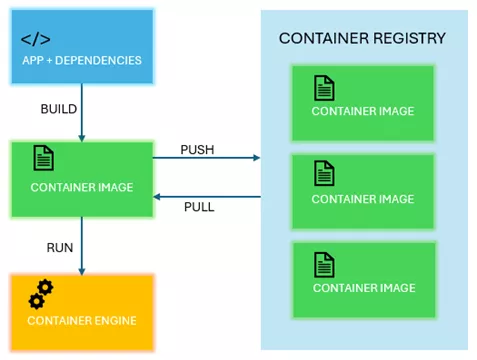Cloud Computing in Healthcare: Improving Data Accessibility, Security, and Cost Efficiency
In the evolving digital landscape of healthcare, integrating cloud computing solutions has become crucial. These technologies offer a revolutionary approach to managing data, enhancing patient care, and streamlining operational tasks. As healthcare providers face mounting pressures to improve patient outcomes while controlling costs, cloud computing is emerging as a game-changer, driving efficiency and innovation.

The Imperative for Cloud Computing in Healthcare
The healthcare sector generates vast amounts of sensitive data —from patient records and imaging results to research data and administrative records. Traditional on-premises data management systems often struggle with scalability, data security, and integration challenges.
Cloud computing resolves these issues and paves the way for flexible, scalable, and cost-effective solutions that can be transformative.
Benefits of Cloud Computing for Healthcare Providers
- Enhanced Data Accessibility and Collaboration
Cloud technology enables real-time, 24/7 access to patient data, empowering healthcare providers to coordinate care seamlessly across multiple locations and specialties. Cloud-based Electronic Health Records (EHR) systems foster the smooth sharing of patient information, leading to more accurate diagnoses, fewer duplicate tests, and streamlined treatment plans. - Scalability and Flexibility
Healthcare organizations vary significantly in size and scope, and their data storage needs can shift dramatically. Cloud computing offers unprecedented scalability, allowing providers to adjust their resources based on current needs without the capital expense of upgrading physical infrastructure. This flexibility is particularly beneficial for managing peak loads and expanding services. - Improved Data Security and Compliance
Data security is a top concern in healthcare, given the sensitive nature of patient information. Leading cloud providers have invested heavily in increasing security and audit compliance. Many cloud solutions are designed to comply with stringent regulations such as HIPAA (Health Insurance Portability and Accountability Act) in the United States, ensuring that patient data remains protected. - Cost Efficiency
Maintaining and updating on-premises systems can be expensive. Cloud computing shifts the financial burden from capital expenditure to operational expenditure. Providers pay for only the resources they use, which can lead to significant cost savings. Additionally, cloud services often include maintenance, upgrades, and support, reducing the need for in-house IT staff. - Advanced data analytics
Cloud platforms have powerful data analytics tools to enhance clinical decision-making and operational efficiency. By leveraging big data and machine learning algorithms, healthcare providers can gain insights into patient outcomes, treatment effectiveness, and operational efficiencies. Predictive analytics can help manage patient populations and improve preventive care. - Disaster Recovery and Business Continuity
Cloud computing solutions provide robust disaster recovery options in case of a system failure or data breach. Data stored in the cloud is backed up regularly and can be quickly restored, minimizing downtime and ensuring continuity of care. It is crucial for maintaining operations and safeguarding patient data in emergencies.
Implementing Cloud Solutions in Healthcare
- Assess Needs and Choose the Right Provider
Before adopting cloud solutions, healthcare providers should assess their specific needs and choose a cloud provider that aligns with those needs. Factors include the provider's regulatory compliance, security protocols, scalability, and customer support. Ensure Data Security and Compliance - Data security and compliance should remain top priorities
Ensure that the cloud providers are compliant with industry standards and regulations. Implement additional security measures, such as encryption and regular audits, to ensure continued compliance. - Train Staff and Manage Change
Successful implementation of cloud solutions requires adequate staff training. Healthcare providers should invest in training programs to ensure employees are comfortable with new systems and workflows. Managing change effectively can help minimize disruptions and maximize the benefits of cloud computing. - Monitor and Optimize
Once cloud solutions are in place, continuous monitoring and optimization are essential. Regularly review performance metrics, security logs, and cost reports to ensure the cloud services meet expectations and deliver value.
Conclusion
Cloud computing represents a significant advancement for healthcare providers, offering numerous benefits ranging from enhanced data accessibility and security to cost efficiency and advanced analytics. By leveraging cloud technologies, healthcare organizations can improve patient care, streamline operations, and stay competitive in a rapidly changing industry. As the healthcare landscape evolves, embracing cloud computing will drive innovation and improve patient outcomes.
How Decos can help?
We provide comprehensive solutions for centralized storage of large digital health data, including EMR and PHR, while ensuring compliance with relevant regulations. Our services include cloud-based remote patient monitoring and management and SaaS (Software as a Service) for quick, on-demand access to business applications and CRM. Additionally, we offer FaaS (Function as a Service), a serverless computing option designed to minimize costs with pay-per-use pricing.

This blogpost is written by Aman Baroliya, Software Engineer at Decos.
He has an expertise in various areas (SDK, MVVM, .Net framework, CommunityToolkit). He also has hands-on experience in bug fixing.
Decos is a cutting-edge technology services partner ready to meet your diverse needs across various industries, including the medical domain. If you have a question about one of our projects or would like advice on your project or a POC, contact Devesh Agarwal. We’d love to get in touch with you!
Discover more

Role of Human Factors Engineering in Design of Portable Medical Devices

Deploying Applications with Ease: A Guide to Containerization

